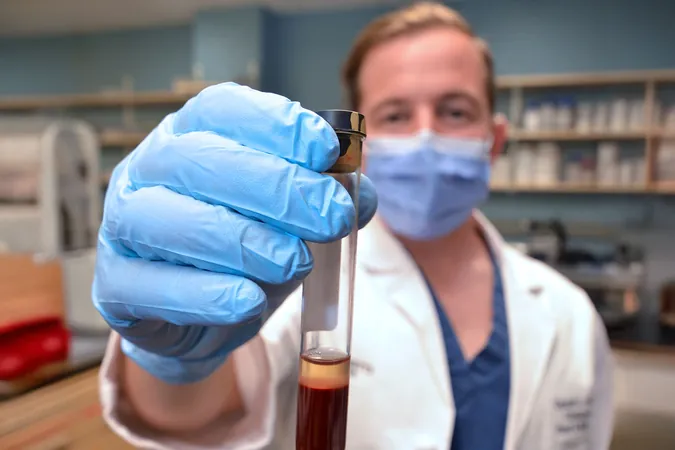
Revolutionary Test Detects Head and Neck Cancer a Decade Early – Harvard Study Reveals
2025-09-10
Author: Arjun
Groundbreaking Discovery in Cancer Detection
Did you know that human papillomavirus (HPV) is responsible for a staggering 70% of head and neck cancers in the U.S.? Despite its prevalence, there isn't a reliable screening method for these HPV-associated cancers, unlike cervical cancers.
Introducing HPV-DeepSeek: The Future of Cancer Screening
A recent study by Mass General Brigham researchers—affiliated with Harvard—has unveiled a cutting-edge liquid biopsy tool, dubbed HPV-DeepSeek. This innovative test has the potential to identify HPV-related head and neck cancers up to 10 years before they manifest symptoms. Early detection could mean more effective treatment and reduced intensity for patients, as highlighted by the study authors.
The Study's Eye-Opening Results
Published in the Journal of the National Cancer Institute, this research is a game changer. Lead author Daniel L. Faden stated, "For the first time, we can accurately detect HPV-related cancers in asymptomatic individuals well before a diagnosis is made." By identifying cancer at its earliest stages, HPV-DeepSeek aims to enhance patient outcomes and improve the quality of life for those at risk.
How Does HPV-DeepSeek Work?
HPV-DeepSeek leverages whole-genome sequencing to find microscopic fragments of HPV DNA that escape tumors and enter the bloodstream. Previous studies have shown the test boasts an impressive 99% sensitivity and specificity for diagnosing cancer, significantly outpacing existing testing methods.
Promising Early Results
In their analysis, researchers examined 56 blood samples from the Mass General Brigham Biobank. Out of these, 28 came from individuals who developed HPV-related head and neck cancers later, and 28 from healthy controls. Remarkably, HPV-DeepSeek detected tumor DNA in 22 of the 28 samples from future cancer patients, while all control samples yielded negative results.
Machine Learning Enhances Detection Accuracy
Thanks to machine learning advancements, researchers increased the test's accuracy, successfully identifying 27 out of 28 cancer cases, even from samples collected up to a decade before diagnosis. The earliest positive result came from a sample taken 7.8 years prior.
Looking Ahead: Further Validation in Progress
The team is now conducting a second, blinded study funded by the National Institutes of Health, using hundreds of samples from the Prostate, Lung, Colorectal, and Ovarian Cancer Screening Trial. This could further reinforce the promising findings of HPV-DeepSeek.
Funding and Future Impact
This pioneering research was made possible by the National Institute of Dental and Craniofacial Research from the National Institutes of Health. As we look to the future, tools like HPV-DeepSeek could revolutionize early cancer detection, ultimately saving lives and improving treatment experiences.

 Brasil (PT)
Brasil (PT)
 Canada (EN)
Canada (EN)
 Chile (ES)
Chile (ES)
 Česko (CS)
Česko (CS)
 대한민국 (KO)
대한민국 (KO)
 España (ES)
España (ES)
 France (FR)
France (FR)
 Hong Kong (EN)
Hong Kong (EN)
 Italia (IT)
Italia (IT)
 日本 (JA)
日本 (JA)
 Magyarország (HU)
Magyarország (HU)
 Norge (NO)
Norge (NO)
 Polska (PL)
Polska (PL)
 Schweiz (DE)
Schweiz (DE)
 Singapore (EN)
Singapore (EN)
 Sverige (SV)
Sverige (SV)
 Suomi (FI)
Suomi (FI)
 Türkiye (TR)
Türkiye (TR)
 الإمارات العربية المتحدة (AR)
الإمارات العربية المتحدة (AR)